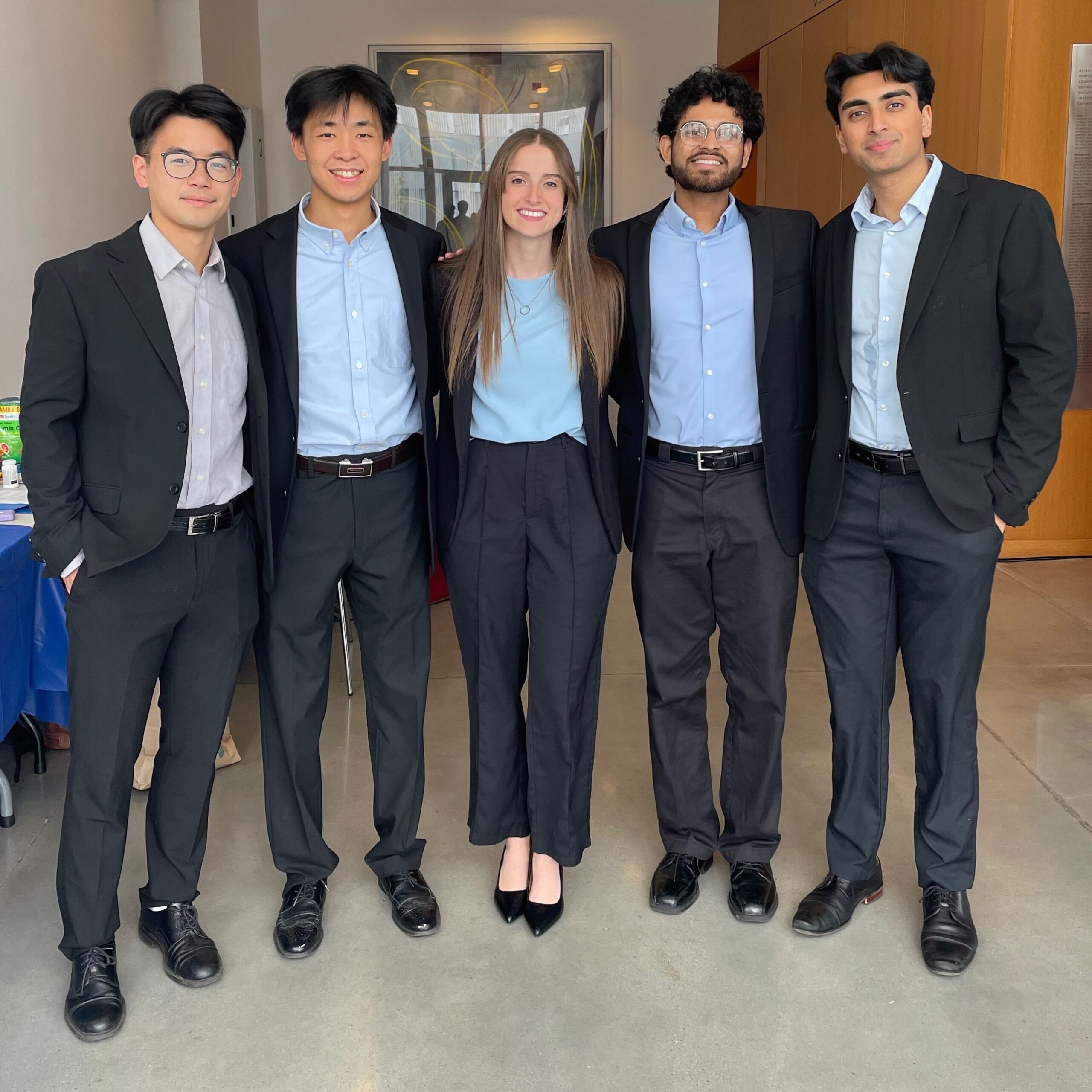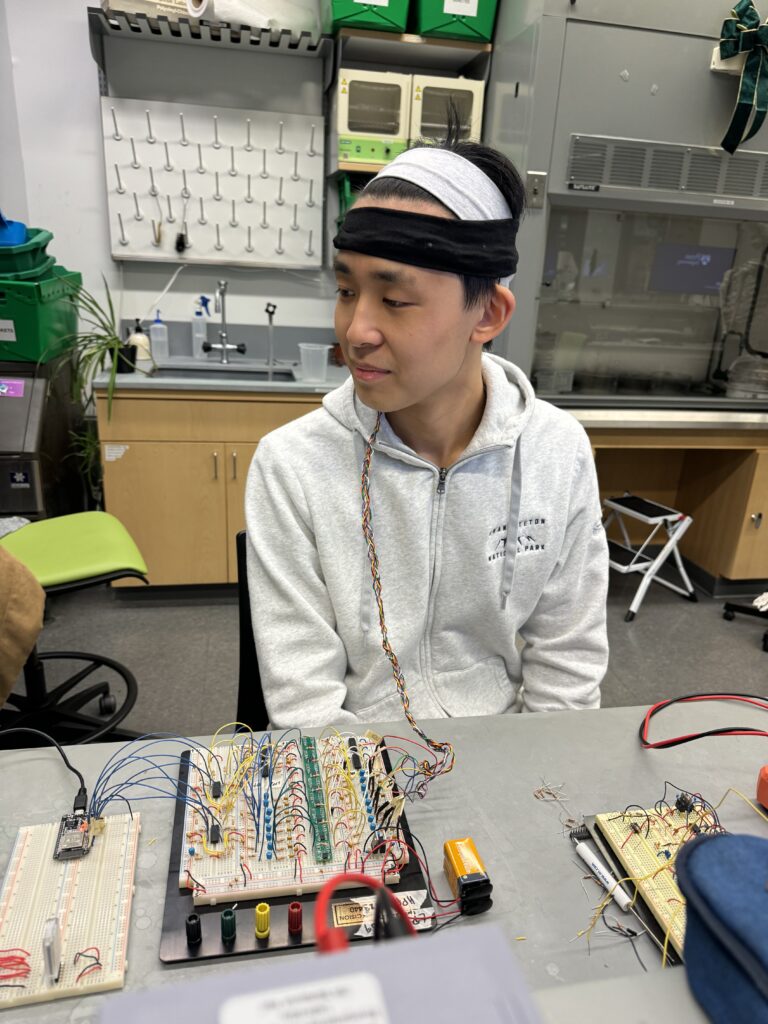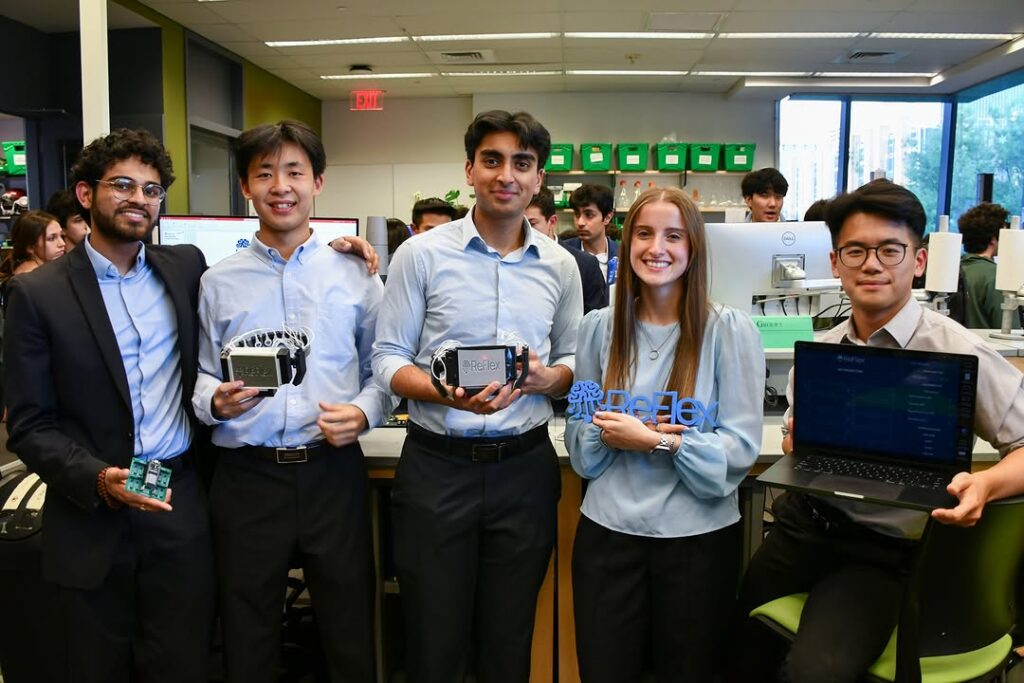2025 Team ReFlex – Rewiring Stroke Rehabilitation

This series profiles three Penn Bioengineering senior design teams whose work received recognition at major competitions in 2025. In Part 1, we feature Team ReFlex, recipients of the Judge’s Choice Award at Penn Engineering’s Senior Design Competition.
Team Members: William Qi, Ryann Joseph, Christopher Wun, Udit Garg, Aditya Gowd
Senior design in Penn Bioengineering is a yearlong capstone experience in which bioengineering seniors identify an unmet bioengineering need, design a solution to address the need, and create a high quality prototype that demonstrates their design. The course consists of BE4950 and BE4960, and was most recently taught by Dr. Erin Berlew, Dr. David Meaney, and Dr. Michael Siedlik.
From the beginning, Team ReFlex set out to do something ambitious: create a system that could help stroke patients regain motor function by aligning therapy with the brain’s intent to move. The idea emerged from a shared interest in neurotechnology, combined with a diverse set of technical backgrounds—bioengineering, robotics, computer science, electrical engineering, and data science. After months of conversations with professors, clinicians, and researchers, the concept took shape: an integrated platform that uses EEG signals and artificial intelligence to detect motor intent and trigger functional electrical stimulation (FES).

The team’s collaborative spirit was central to their progress. Each member brought complementary skills—some focused on the machine learning algorithms, others on signal processing, printed circuit board (PCB) design, or mechanical fabrication. Together, they built a noninvasive system designed for versatility, comfort, and real-world applicability.
“We knew from the start that we wanted to work on something in neurotechnology, as it was a space where all of our interests came together,” said William Qi. “With teammates in bioengineering, robotics, computer science, electrical engineering, and data science, we felt like we had a unique mix of skills to build something meaningful.”
The path wasn’t without challenges. The interdisciplinary nature of the project meant constantly stepping beyond individual comfort zones. Signal processing became a particular hurdle once the team moved to printed circuit boards—troubleshooting became more complex, but they leaned on strong communication and trust to navigate the setbacks.
As they developed the system, the team connected with a manufacturer of FDA-approved FES devices and successfully integrated one into their prototype—something that Dr. Michael Siedlik, one of the bioengineering senior design instructors, described it as a powerful example of vision meeting execution.
“They are a shining example of how our students can turn a plan that initially seems a little like science fiction into a high-quality biomedical device with the potential to address an important need,” Siedlik noted.

ReFlex team picture picture after their successful BE demo day.
The result is a modular, user-friendly platform that allows patients to participate in their own rehabilitation more directly and independently. Designed to be compatible with existing clinical tools, ReFlex introduces a new level of personalization and responsiveness to therapy—advancing the potential of brain-computer interfaces in a field that clinicians themselves acknowledge as outdated.
ReFlex received the Judge’s Choice Award at Penn Engineering’s 2025 Senior Design Competition, a recognition not only of their technical achievement, but of their commitment to reshaping what recovery can look like for stroke survivors.
